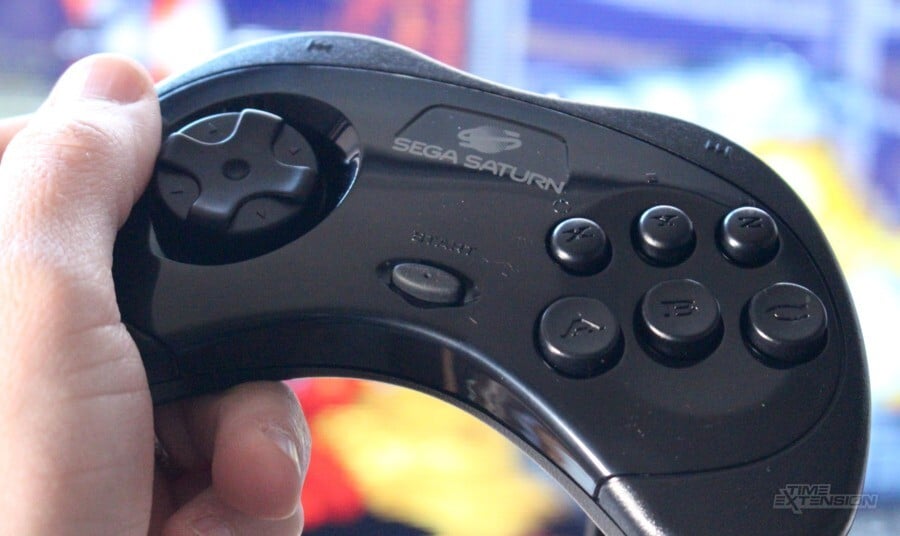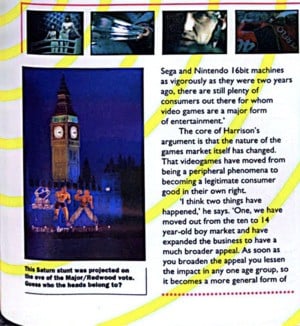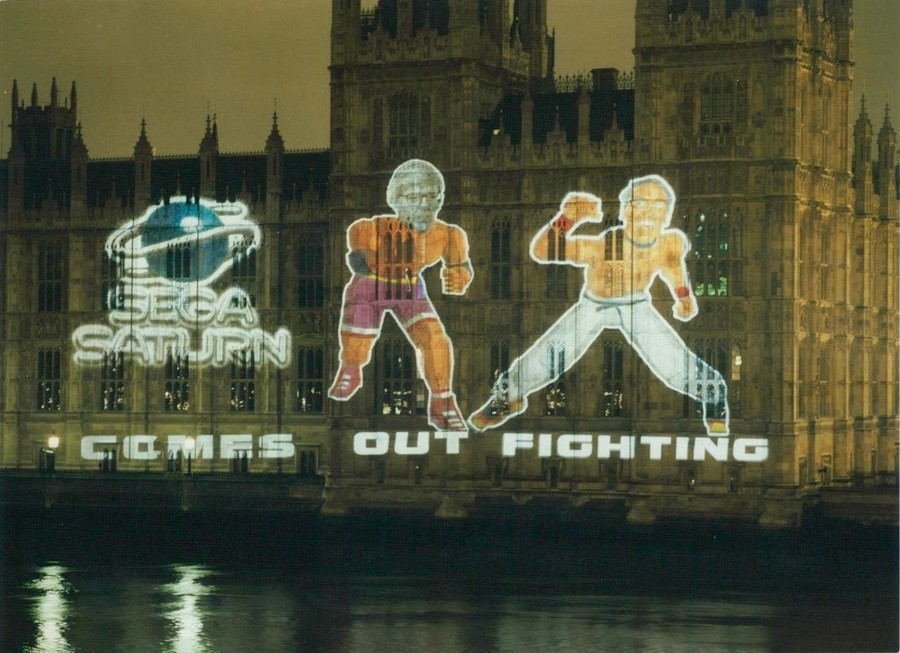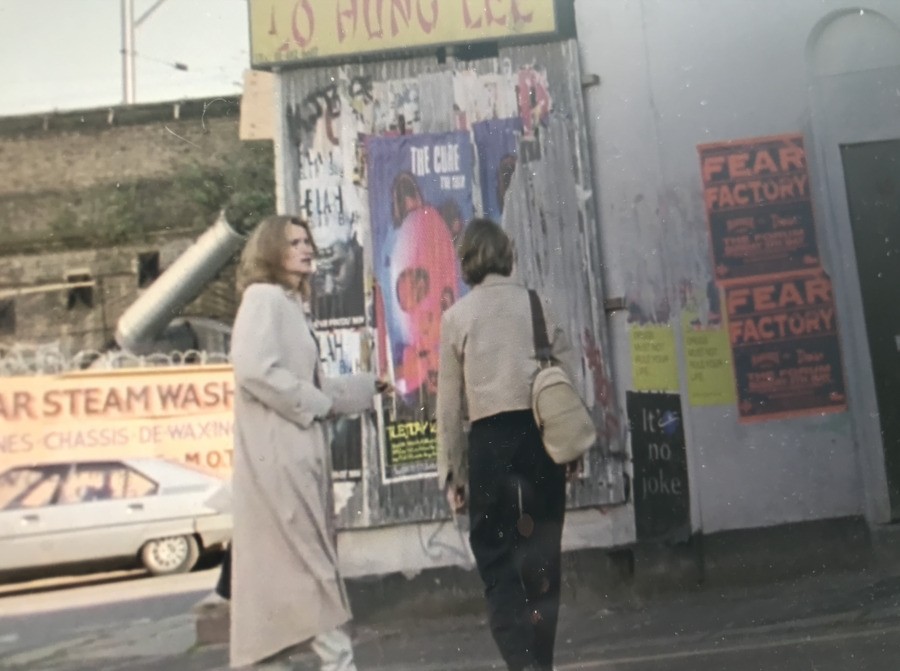
On the eve of the Conservative Party leadership election in June 1995, Sega put into action one of its most bizarre marketing campaigns up to that point.
From a boat on the River Thames, a group acting on behalf of the video game hardware and software manufacturer projected a large image of Virtua Fighter onto the side of the House Of Commons, with the heads of the two characters replaced with that of the Tory party candidates' John Major and John Redwood.

The stunt was an attempt to gain publicity for the Sega Saturn — the new 32-bit Sega console which was scheduled to release in the UK stores the following month — with the message "Sega Saturn Comes Out Fighting" also being projected onto the side of the historic building. However, after people started asking questions about the legality of such an action, Sega understandably got cold feet and refused to accept responsibility for the stunt, with the head of marketing for the Sega Saturn in Europe, Jeremy Crisp, publicly denying that Sega was ever involved in a January 1996 issue of Edge Magazine.
This is just one of a number of examples of guerrilla marketing that Sega of Europe attempted back in the mid-to-late '90s, with the company resorting to more unconventional methods of promotion due to no longer having the budget to pay for lucrative marketing campaigns like sponsoring F1 teams,
Edge, for instance, reported at the time that Sega's rival Sony was believed to be dedicating a whopping £20 million for the promotion of the PlayStation in the UK by the end of December 1996. Sega, meanwhile, in comparison was only committing a quarter of that amount to market the Saturn in the UK during the same period. As a result, Sega was desperately looking for a way to close the gap. One way it thought it could do this was with guerrilla marketing.
Crisp told Edge magazine at the time:
"One of the benefits of Sega is that we’re very quick to get our marketing into what’s going on out there, making it contemporary and interesting to people. If an opportunity comes up we can act on it very quickly. We use that as an advantage over our competitors and try to exploit the fact that we can do it and they can’t. As a marketing tool, I guess we’d call it guerrilla marketing. Of course, when we do have the money we can do traditional marketing activities as well."

Despite what Crisp told Edge, Sega's competitor Sony was no slouch in this area either. According to an article in Marketing Week from 1996, the PlayStation manufacturer had set aside nearly 15 percent of its media budget at the time for guerilla marketing and interactive media "to generate maximum PR". This included stickering train stations in London and holding fake protests against the console with SAPS (the Society Against PlayStation) — a fictional group that had appeared in PlayStation's television advertising at the time.
It's Sega's efforts, however, that interest us the most, primarily due to the company's frequent run-ins with the law.
Following the controversial Major/Redwood stunt, Sega partnered with a company to illegally fly poster areas of London, ahead of April Fool's Day 1996. The design of these posters would feature the Sega Saturn logo and the tagline "It's no joke", and immediately drew attention from the publication Campaign Live. This time around, however, Sega didn't shy away from its potential lawbreaking, with the European marketing director Alan Mee telling Campaign Live that it was worth it and that "This will give us instant exposure".
We couldn't find any further coverage of this campaign and its impact but remarkably stumbled across evidence that it did end up taking place while watching a 1997 Mike Leigh-directed film called Career Girls (that is now streaming on Channel 4). In the final moments of the film, two of the Saturn posters can be seen plastered on one of the filming locations, situated in an area of Camden.


We did try and reach out to Mee to see if he had any data on how successful this campaign was or if Sega faced any fines or pushback. Sadly, though, we haven't heard back as of the time of writing (we'll update this if we do!). Nevertheless, we think it's remarkable that the console manufacturer was so willing to take risks and go to such lengths in order to raise awareness of its latest machine — something we can't imagine Sony or Xbox doing today.
As history tells us, despite its best effort, the Sega Saturn sadly lost the console war against the PlayStation in the UK, with its parent company later pulling the plug on the console in North America on March 14th, 1998, as reported by the New York Times.
